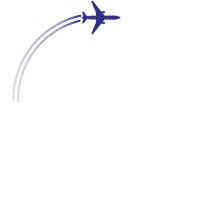PRIME AVIATION COURSES
&
Flight Training Programs





Becoming a drone pilot involves several key steps and considerations:
Steps to Become a Drone Pilot
- Understand the Regulations: Familiarize yourself with the drone regulations in your country or region. Requirements can vary significantly, covering registration, pilot certification, and flight restrictions.
- Training and Education:
- Online Resources: Start with online resources and courses to learn about drone operations, regulations, and safety practices.
- Formal Training: Consider enrolling in a drone pilot training course offered by certified flight schools or institutions. These courses cover topics like flight planning, airspace regulations, and emergency procedures.
- Certification:
- Remote Pilot Certificate: Obtain a remote pilot certificate or license if required by your local aviation authority. This typically involves passing a knowledge test that assesses your understanding of drone regulations and operational procedures.
- Practice and Experience:
- Hands-on Experience: Gain practical experience by flying drones under supervision or in controlled environments.
- Skill Development: Practice different maneuvers, flight modes, and emergency procedures to build proficiency.
- Compliance and Safety:
- Pre-flight Checks: Conduct thorough pre-flight checks to ensure the drone and equipment are in good condition.
- Safety Protocols: Follow safety protocols and adhere to airspace regulations during all flights.
- Career Paths:
- Commercial Drone Pilot: Pursue opportunities in aerial photography/videography, surveying, mapping, agriculture, inspections, and more.
- Public Safety: Work in emergency response, search and rescue, or law enforcement.
- Freelance: Offer drone services independently or through specialized companies.
Key Considerations
- Regulations: Stay updated on drone laws and regulations to avoid legal issues.
- Safety: Prioritize safety at all times and follow best practices for drone operations.
- Insurance: Consider drone insurance to protect against accidents or liabilities.
- Continuous Learning: Stay informed about advancements in drone technology and regulations through ongoing education and training.
Becoming a drone pilot offers diverse career opportunities and requires a commitment to safety, continuous learning, and compliance with regulations. If you have specific questions or need further details, feel free to ask!

Courses for Kids (Ages 5-10)
Objective: Introduce children to the fundamentals of aviation in a fun, engaging, and interactive manner.
- Aviation Exploration
- Storytelling Sessions: Stories about famous aviators and their adventures.
- Animated Videos: Short cartoons explaining basic aviation concepts.
- Hands-On Activities
- Model Airplane Building: Simple, safe kits for building model airplanes.
- Paper Airplane Competitions: Teaching aerodynamics through fun flying contests.
- Basic Principles of Flight
- Interactive Diagrams: Learn about different parts of an airplane.
- Simple Experiments: Demonstrate lift, thrust, drag, and weight with easy experiments.
- Simulated Flying
- Kid-Friendly Flight Simulators: Experience the basics of flying an aircraft.
- Role-Playing: Acting as pilots, air traffic controllers, or flight attendants.
- Creative Projects
- Aviation Art and Crafts: Drawing, painting, or crafting airplanes.
- Story Writing: Create short stories or comic strips about flying adventures.
- Field Trips and Virtual Tours
- Airport and Museum Visits: Real-life exploration of aviation environments.
- Virtual Tours: Online tours of airports and aircraft.
- Safety and Teamwork
- Basic Safety Lessons: Importance of safety in aviation.
- Group Activities: Emphasize teamwork and communication.
Courses for Teens (Ages 11-18)
Objective: Provide a deeper understanding of aviation concepts, technical knowledge, and practical skills.
- Introduction to Aviation
- History and Development: Key milestones in aviation history.
- Aviation Terminology: Understanding common aviation terms.
- Principles of Flight
- Aerodynamics: In-depth look at lift, drag, thrust, and weight.
- Flight Mechanics: Basics of aircraft control and maneuvering.
- Aircraft Systems
- Airframe and Powerplant: Study of aircraft structures and engines.
- Avionics: Introduction to aircraft electronic systems.
- Navigation and Flight Planning
- Navigation Basics: Use of maps, charts, and GPS.
- Flight Planning: Route selection, fuel calculations, and more.
- Meteorology for Pilots
- Weather Patterns: Understanding how weather affects flight.
- Weather Instruments: Tools used to monitor and predict weather conditions.
- Simulated and Real-World Flying
- Advanced Flight Simulators: More complex flight simulation experiences.
- Introductory Flight Lessons: Actual flight training sessions (where feasible).
- Career Pathways in Aviation
- Aviation Careers: Explore various careers such as pilot, engineer, air traffic controller, etc.
- Education and Training: Guidance on further education and certifications.
Courses for Adults
Objective: Offer comprehensive training for those interested in pursuing a career in aviation or expanding their knowledge.
- Pilot Training Programs
- Private Pilot License (PPL): Comprehensive training for aspiring private pilots.
- Commercial Pilot License (CPL): Advanced training for commercial pilot certification.
- Airline Transport Pilot License (ATPL): Highest level of pilot certification.
- Aircraft Maintenance Engineering
- Basic and Advanced AME Courses: Training on aircraft maintenance, repair, and inspection.
- Certifications: Preparation for obtaining AME licenses (Category A, B1, B2).
- Specialized Aviation Courses
- Drone Pilot Training: Certification and training for commercial drone operations.
- Aviation Management: Courses on airport management, airline operations, and aviation logistics.
- Continuing Education and Professional Development
- Workshops and Seminars: Regular updates on the latest in aviation technology and regulations.
- Advanced Certifications: Specialized training in specific areas of aviation.
“Let’s get one thing straight. There’s a big difference between a pilot and an aviator. One is a technician; the other is an artist in love with flight.”
Why Choose Prime Aviation?
Experience top-quality training, personalized attention, and industry-leading facilities that set Prime Aviation apart in the world of flight academies.

Experienced Instructors
Learn from industry professionals with years of experience in aviation, ensuring you receive the best training possible.

State-of-the-Art Facilities
Train with the latest aviation technology and equipment, giving you a competitive edge in the field of aviation.
Ready to Soar?
Join Prime Aviation today and start your journey to becoming a skilled and confident pilot & aircraft engineers . Explore our courses now!

